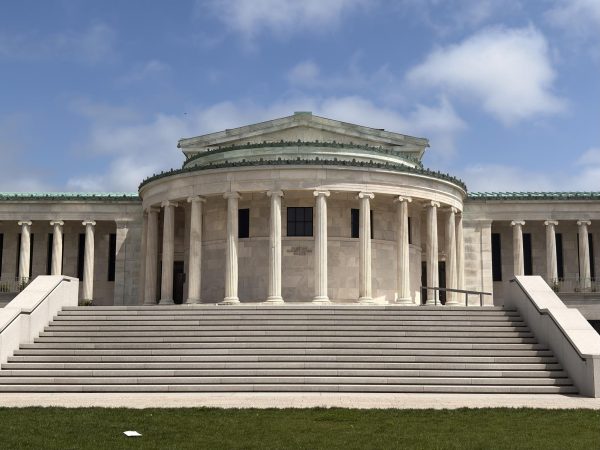Wi-Fi update to split service between residents and commuters

Residence halls will use Apogee services.
The entire Internet system around campus will be upgraded and made wireless by the Fall 2014 semester.
Once a shared network between the dorms and academic buildings, it will now be separated onto two different networks. This will help to increase speed and connectivity throughout campus.
Currently, the ResNet Internet and campus Internet are serviced through the same connection.
According to Don Erwin, chief information officer, the Wi-Fi on campus keeps reaching the bandwidth capacity and has already done so once this year. He said that upgrading the Wi-Fi around campus is meant for the school to be able to meet student expectations, as well as being able to provide the ability for students to engage in their academic work online.
According to Erwin, the shared Wi-Fi capacity is directed toward the campus during the day and then towards the dorms anytime after five or six in the evening right now. He said that the amount of wireless Internet that the campus shares was previously upgraded from 500 megabytes to 750 megabytes. It is planned to increase by another full gigabyte for the fall under service provider Apogee.
“Service capacity is not only going to double from what it was in the beginning of this year,” Erwin said. “But it’s also going to take a load off by separating the two networks, campus and residence.”
Tim Ecklund, associate vice president of student affairs, said that Buffalo State has been aware that the wireless Internet around campus and residence halls hasn’t been meeting the needs of the students. He said that the area of technology has outpaced them in trying to keep up with the Internet.
“Our students in our satisfaction surveys, were regularly telling us that the service wasn’t good and that we needed to improve it,” Ecklund said. “So we partnered this fall with computing services to come up with a solution and we were successful in our collaboration to come up with what we think is a really great solution with a company called Apogee.”
The advanced ResNet service company, Apogee, helps to provide service and support for campus residential networks. It will be taking over the current ResNet access, and will be providing the wireless access as well as customer service for anyone who needs help with their Internet. The wireless access beginning in the fall will be available throughout every residence hall. Apogee works with other college campuses such as SUNY Brockport and SUNY Cortland.
Ecklund said that Apogee will serve as a contractor who will run the ResNet service for Buffalo State. Apogee will be responsible for providing Internet access throughout campus, as well as the necessary construction for placing the Wi-Fi hardware anywhere it needs to be.
“What we expect, the outcome of that, is a capacity that we couldn’t get otherwise for Internet service,” Ecklund said. “A consistency with the provision of that service and a very high level of customer service.”
According to Erwin, in addition to the gigabyte increase and outfitting the residence halls with Internet, Apogee will be placing the Internet service that goes through the halls in five areas around campus. He said they would most likely go in areas that resident students often frequent, such as the dining hall, student union and library. While resident students use ResNet, it will create less traffic and a faster Internet since it will no longer be connected with the campus Wi-Fi.
“It’ll be dedicated and controlled by the contractor so it’s optimized for the resident’s student usage, the way they use it,” Erwin said. “What it’s going to do is free up all that capacity on our existing Internet connection so that the service will be much better when you’re actually on campus.”
William Harold, a business major, currently dorms in Tower 4, but has previously experienced hard wire Internet through an Ethernet cord during his time residing at Buffalo State.
“Having Wi-Fi in the dorms is pretty convenient, I have a laptop and a PC in my dorm and on top of that, I have a game console,” Harold said. “Since I only have one Ethernet cable, it’s a pain to unplug one piece of technology over and over again.”
Harold said that since there is Wi-Fi in Tower 4, he is more easily able to use all of his devices at once. He said that since he got back from the breaks from school, the Internet has been decent and he hasn’t had a problem.
One more new feature that will be available to students in the fall is the chance to purchase their own additional bandwidth if they want to. The extra capacity will allow students with gaming consoles, extra wireless devices, etc. to have a better connection and faster speed to Wi-Fi. According to Ecklund, it could be around $60 per semester, about $10 a month. It would double the speed of the Internet for the student.
“This is very important to the administration; we want to make sure that our students are happy with their experience here at Buffalo State,” Erwin said. “Through the residence life surveys and the campus IT surveys, we’ve listened and we’ve heard and we are responding to what we hear that students feel important.”
Email: [email protected]
Twitter: @lcoppola92






